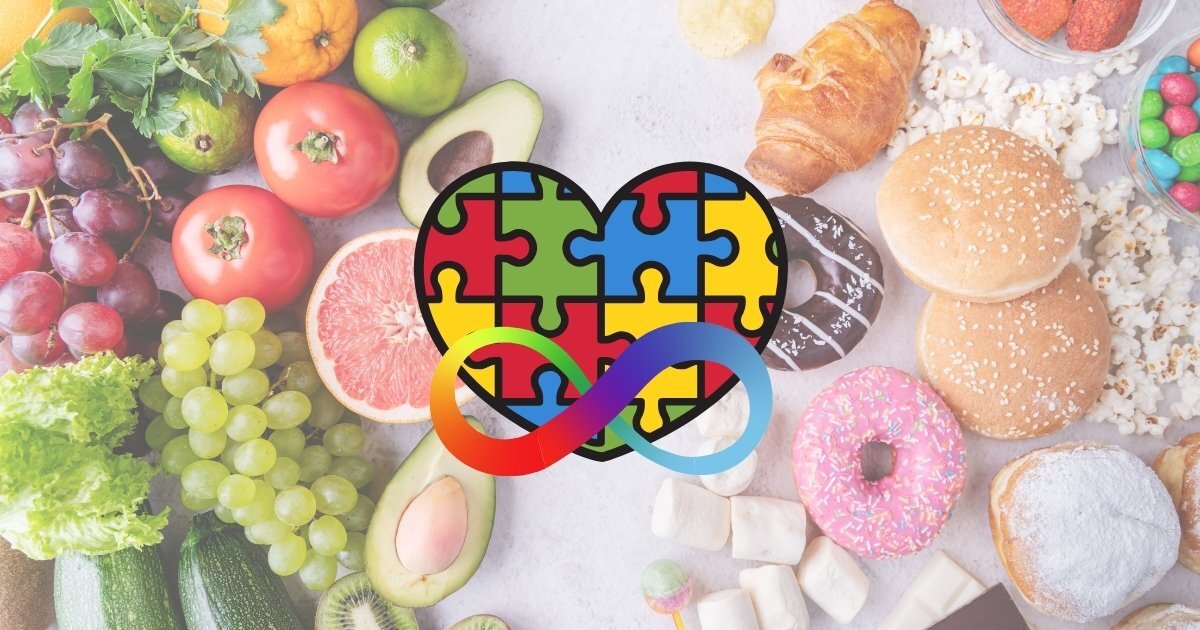The Link Between Autism and Processed Food
Autism Spectrum Disorder (ASD) is a neurological and developmental disorder that affects one's ability to interact, learn, and behave. Children are born with this condition, and the cause is currently attributed to genetic factors.
However, recent studies suggest that environmental and lifestyle factors, such as diet, may also contribute to the development or severity of Autism. A particular area of growing interest is the potential connection between processed foods and Autism. This blog explores what current science reveals about this connection and provides possible solutions.
What are Processed Foods?
Processed foods are typically categorized into two types: Processed and Ultra-Processed.
Processed Foods
Food that has been altered from its original form for convenience, preservation, or taste enhancement. This includes a wide range of products, from frozen meals and chips to sugary drinks and snack bars.
Ultra-Processed Foods
Foods that are made from substances extracted from other foods and usually contain numerous additives such as preservatives, sweeteners, colorants, etc. This includes a wide range of products, from cereal and yogurt to soft drinks and deli meats.

Additives added to processed food are generally considered safe for consumption, but recent studies suggest that they can have a long-term impact on child development, especially for children with neurodevelopmental conditions, when consumed in large amounts.
Autism and Diet: What the Science Says
Multiple studies concluded that children with Autism often have dietary imbalances, such as selective eating and gastrointestinal issues. These dietary patterns can exacerbate behavioral symptoms.
Nutritional interventions, however, have shown promise in improving focus, mood, and digestive health in some children with ASD.
Studies have also shown that children with Autism tend to have a less diverse gut microbiome. For example, research found reduced levels of Prevotella and other fermenting bacteria in children with ASD, which may affect digestion and neurotransmitter production.[9]
Additives and the Developing Brain
Food additives, such as food dyes (e.g., Red 40, Yellow 5), preservatives (like BHA and BHT), and high-fructose corn syrup, are especially considered potential concerns for children with Autism. Certain food additives may increase oxidative stress and inflammation in the brain.
These conditions are already heightened in individuals with ASD, and additional stress from additives can interfere with neurotransmitter regulation and brain signaling.[7] Autistic children are more vulnerable as they may have differences in detoxification pathways, immune responses, and gut barrier integrity, making them potentially more sensitive to environmental toxins and food chemicals. [8]

Gut, Health, Processed Foods, and Autism
The gut microbiome helps regulate mood and behavior by producing neurotransmitters like serotonin and GABA, and it communicates with the brain through immune and neural signals.[6]
Processed foods, often low in fiber and high in additives, can disrupt the microbiome, leading to inflammation and reduced microbial diversity. [1]
Children with Autism often show these disruptions, with fewer beneficial bacteria and more pro-inflammatory species, which are linked to digestive issues and behavioral symptoms like anxiety and irritability.
Parental Observations and Dietary Interventions
Many parents with autistic children notice improvements in behavior, mood, focus, and digestive issues when processed foods are reduced or eliminated. Though anecdotal, these patterns are frequent and have driven interest in dietary interventions.[4]
Gluten-free, casein-free (GFCF) diets are among the most widely adopted interventions. Others include eliminating artificial food dyes, preservatives, and refined sugars and increasing the intake of organic, whole foods.
However, eliminating major food groups can lead to nutritional deficiencies if not appropriately managed. Thus, a healthcare provider or registered dietitian can ensure that the child still receives essential nutrients while tailoring the diet to their individual needs and sensitivities.[5]
Limitations of Current Autism Research
While some studies show benefits of dietary changes for children with ASD, results are mixed, and many studies are small or lack rigorous controls.
Just because two things occur together, like reduced symptoms and a dietary change, does not prove one causes the other. Other factors (such as therapy, changes in routine, or placebo effect) could explain the improvement, which is why controlled studies are essential.
Most existing studies on diet and Autism are observational or rely on parent reports. To better understand the real effects of diet, we need randomized controlled trials with larger sample sizes, longer durations, and better-defined dietary protocols.[2]
Tips for a Brain-Healthy Diet
Many changes can be made for a more brain-healthy diet. For instance, instead of packaged snacks, one can try options like fresh fruit, homemade trail mix, whole grain crackers, yogurt, berries, smoothies, etc.
One can also try nutrient-rich foods that support cognitive and behavioral health:
- Omega-3 fatty acids: salmon, flaxseed, and walnuts
- Magnesium: Leafy greens, beans, whole grains
- Zinc: Pumpkin seeds, legumes, poultry
- B vitamins: Eggs, bananas, fortified cereals
- Probiotics: Yogurt, kefir, sauerkraut, miso
One can also involve kids in healthy eating habits:
- Let them choose fruits/veggies at the grocery store
- Have them help with simple cooking tasks
- Use fun shapes or bento boxes to make meals appealing
- Start with small changes—substitute one processed snack per day with a whole-food alternative
- Praise curiosity and experimentation, not just “clean plates.”
Conclusion
We know that children with Autism often have unique dietary patterns and gut health differences. Processed foods may aggravate symptoms in some children, but more research is needed to confirm direct effects.
Diet may play a supportive role in autism care, but it isn’t a cure. Because every child is different, a doctor or dietitian can help identify specific needs, rule out deficiencies, and guide families toward safe, evidence-based interventions.

Choosing a healthy plant-based and vegan diet is most beneficial when it comes to:
-
Higher levels of energy;
-
Improved sleep;
-
Aids in energy and overall happiness;
-
Provides a sense of comfort and relief;
-
Could prevent major diseases such as obesity and diabetes;
-
Accomplish weight-loss and management; and
-
Improves mental and cognitive functioning.
There are really no excuses not to try healthier habits in your everyday life. If you are a man or woman looking for specific benefits of adopting healthier habits or just want to know about the general healing properties of herbs. Please remember to comment or post any health questions, or contact us directly!
Also feel free to share any of your favorite recipes to make and share it with the Assuaged community on our ➡️ Share A Recipe ⬅️ page!
![]()















